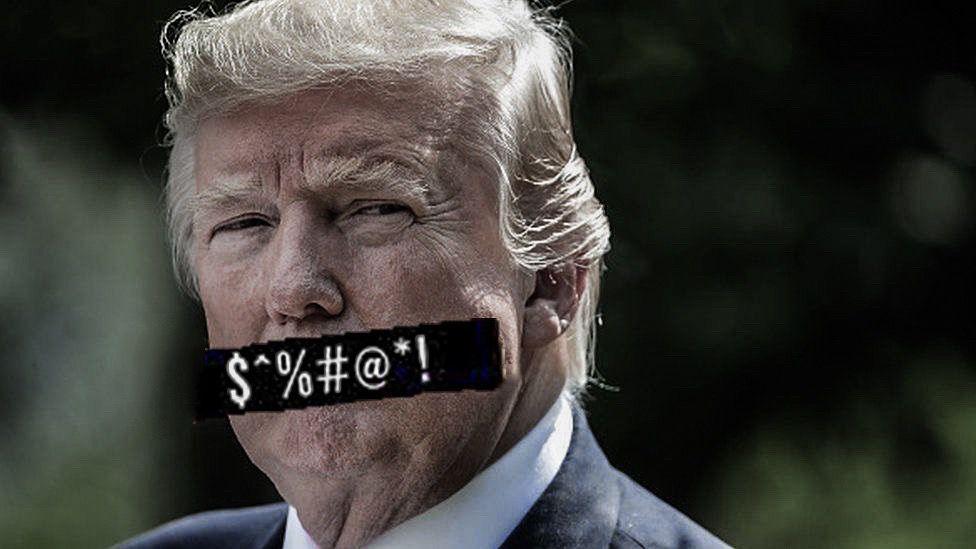Donald Trump investigation reveals new details of alleged fraud
- Published
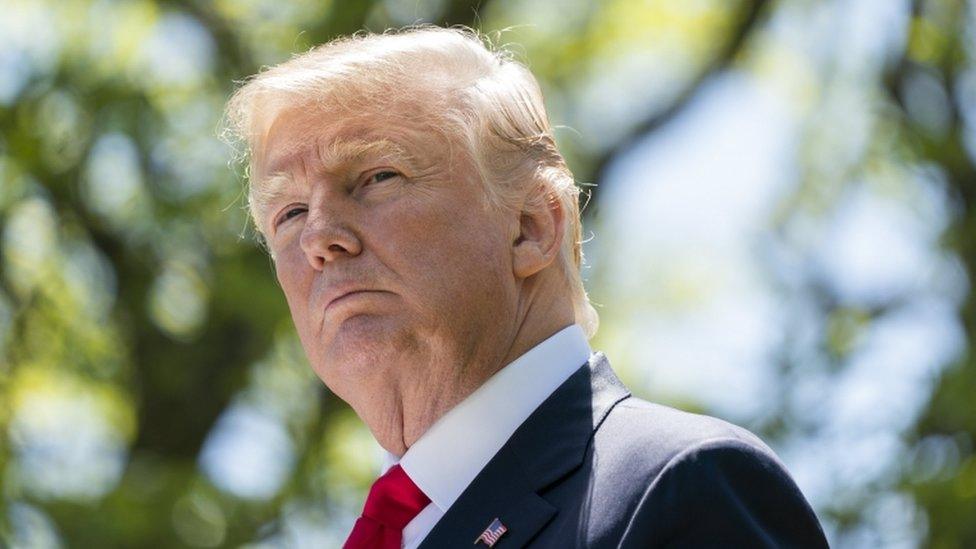
Donald Trump's company is accused of inflating the value of assets like his New York City apartment to defraud lenders
Donald Trump's family business misrepresented the value of some of its biggest assets by hundreds of millions of dollars, according to documents filed by the New York attorney general.
Letitia James accuses the Trump Organization of using "fraudulent or misleading asset valuations" to get loans, insurance and tax breaks.
It is Ms James' strongest language yet, as she tries to get Mr Trump to testify in her civil investigation.
Mr Trump denies any wrongdoing.
The former president, a Republican, has called the investigation into his business practices a politically motivated witch-hunt by Ms James, who is a Democrat.
She opened a civil inquiry in 2019 into claims that - before he took office - Mr Trump had inflated the value of his assets to banks when seeking loans.
Mr Trump's lawyers are trying to stop Ms James from questioning the former US president and his children, and he has sued her to try to halt the probe.
Ms James's civil case is separate to an ongoing criminal investigation in Manhattan into the organisation's business practices.
Her latest court filing on Tuesday, external is the first time the allegations being levelled at the Trump Organization have been detailed with specific examples.
They involve six of his properties in New York and Scotland, and the "Trump brand".
For example, his large property in Westchester county, north of Manhattan, was valued by the Trump Organization at $291m in 2012 (£189m at the time), however an appraisal in 2016 valued it far lower, at just $56m, the court filing says.
The attorney general also alleges that Mr Trump's lavish three-storey penthouse in New York's Trump Tower was valued based on a size of 30,000 sq ft (2,800 sq m), but it is in fact 10,996 sq ft.
The court filing claims that at least two false statements were made to the Internal Revenue Service (IRS) - the main tax body in the US - that "substantially overstated" the value of two properties to get a tax break.
Ms James says this is evidence that the Trump Organization "used fraudulent or misleading asset valuations to obtain a host of economic benefits, including loans, insurance coverage, and tax deductions."
The latest court documents are part of legal action the New York attorney general is taking against the former president, his eldest son Donald Trump Jr and his daughter Ivanka Trump to force them to testify and answer questions as part of the civil investigation.
In a statement, Ms James said "the Trumps must comply with our lawful subpoenas... because no one in this country can pick and choose if and how the law applies to them."
Allow X content?
This article contains content provided by X. We ask for your permission before anything is loaded, as they may be using cookies and other technologies. You may want to read X’s cookie policy, external and privacy policy, external before accepting. To view this content choose ‘accept and continue’.

The initial summons prompted Mr Trump's lawyers to sue Ms James in an attempt to stop the investigation, accusing her of violating his constitution rights by pursuing a partisan inquiry.
Ms James says she wants to question his children in particular because Donald Trump Jr helps to run the family business and has certified the company's financial statements, while Ivanka Trump "negotiated and secured financing" for Trump properties.
She has already questioned another of Mr Trump's sons, Eric Trump, who partly took over control of the company when his father became president in 2017.
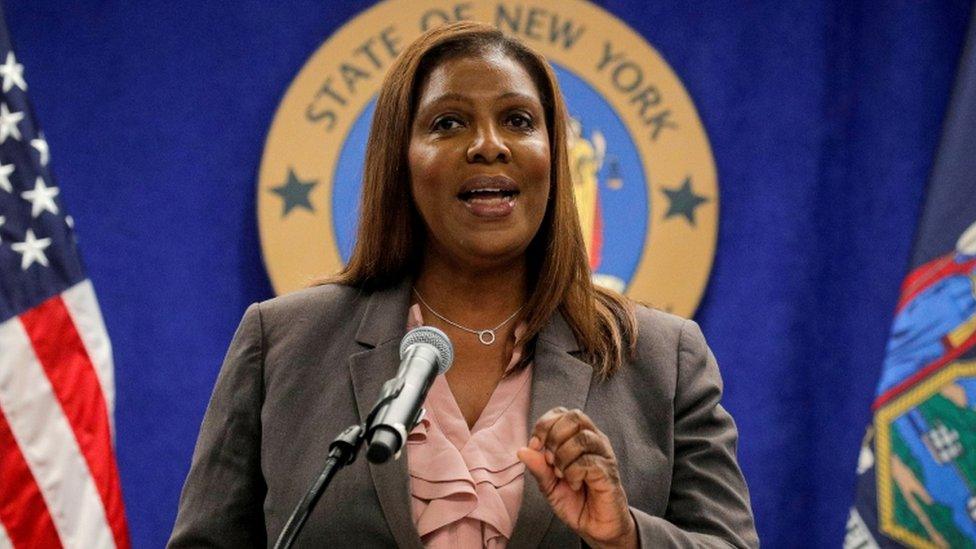
The latest court filings by New York Attorney General Letitia James detail some of the most specific allegations yet being levelled at Donald Trump's family business
Letitia James's inquiry into Donald Trump's dealings is a civil investigation, meaning it could result in a fine or lawsuit.
The criminal investigation into the Trump Organization is now being run by the new Manhattan District Attorney, Alvin Bragg. He is using some of the evidence Ms James's team says it has uncovered.
In July, the Trump Organization and its finance chief, Allen Weisselberg, were charged over an alleged 15-year-long scheme of helping executives evade taxes by giving benefits, such as rent and school fees, that were hidden from the authorities.
Lawyers for the firm and Mr Weisselberg have pleaded not guilty to tax fraud.
A flashback through four turbulent years of Trump
- Published19 January 2022
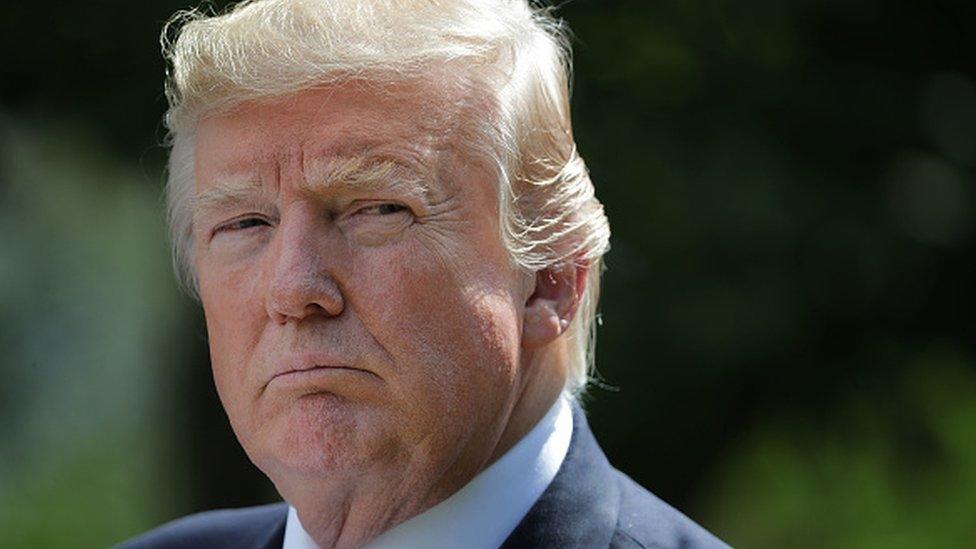
- Published2 July 2021
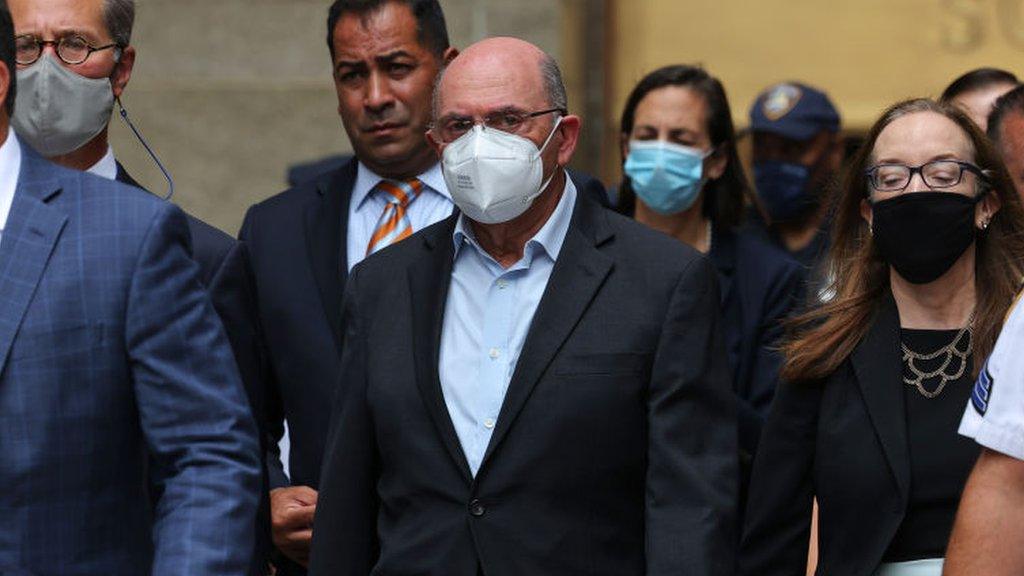
- Published19 May 2021
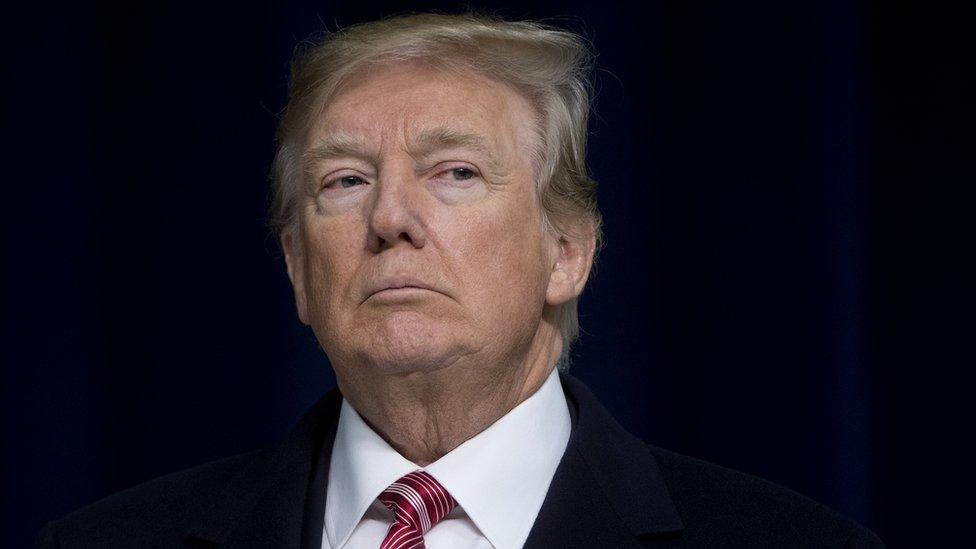
- Published12 January 2022
